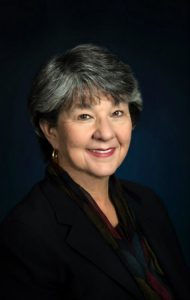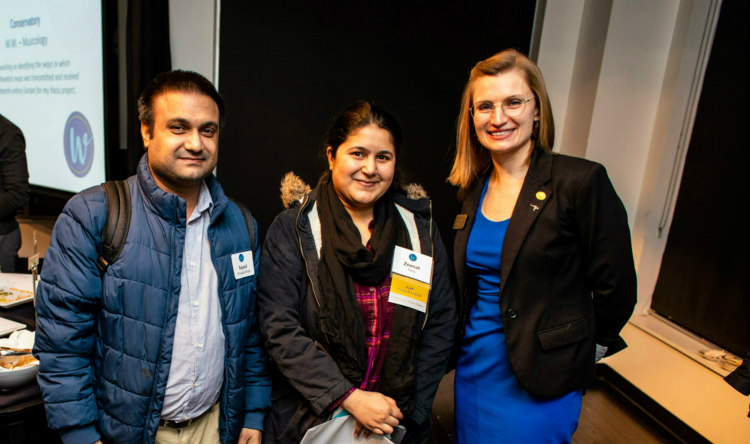New funding creates opportunity for STEM mentorship
Building a career in engineering as a woman 40 years ago had its challenges, but Janet Williams, BSME ‘83, succeeded and is reaching out to young women to give a hand up through scholarships and mentoring.
“I like to joke that I’m an accidental engineer,” Williams says. “I didn’t discover engineering until I was hired at Burns & McDonnell Engineering in 1979.”
Williams was an exemplary student whose parents understood her opportunities.
“I was the first person in my family to earn a college degree,” she says. “My first degree was actually in Spanish.”

But working at Burns & McDonnell among engineers changed her trajectory.
“Once I figured out what engineers did, I thought, ‘I can do this.’ And I embarked on a three-year endeavor of part-time and full-time classwork at UMKC to graduate with my BSME in 1983.”
Williams was part of the charter group that founded the UMKC chapter of the Society of Women Engineers (SWE) while she was in her senior year.
“The women in SWE were a wonderful support group for a new engineer who lacked self-confidence among her male peers in the workplace,” she says. “They helped me see what I brought to the table, taught me how to dress professionally and gave me leadership opportunities in STEM outreach.”
When Williams moved to Albuquerque, New Mexico in 1989, she was disappointed to find there was not a SWE chapter there. With a group of other women engineers who understood the particular pressures of being a woman in a field dominated by men, they formed the Central New Mexico Professional Section of Society of Women Engineers.
“We were all grateful for the support we had getting to where we were, so we were all happy to give back by conducting outreach programs, giving science fair awards to young women and eventually establishing several scholarships for women in engineering.”
Williams notes that Albuquerque is a particularly culturally rich area with a large population of Hispanic and Native American residents, both groups that are largely underrepresented in the field. In addition, Williams knows that research shows that having role models is a hugely important factor in girls pursuing engineering – something they often lack.
“It has been gratifying to see the young women we have awarded scholarships to go on to graduate with a degree in engineering, or to be inspired to continue with math and science in high school so they can be ready for engineering or other STEM careers when they enter college.”
Despite her success in Albuquerque, she wanted to do more. While she had considered a scholarship for women in engineering at UMKC in her estate planning, she wanted to have a more immediate impact.
“That’s when I became aware of the UMKC Women’s Graduate Assistance Fund, which was especially appealing for several reasons,” Williams says. “It was more affordable than most endowments. I was able to designate the award for a woman in SCE and it was able to be awarded immediately, rather than waiting for years. These were all very important factors to me.”
Earlier this year, Williams made a gift to the UMKC Women’s Graduate Assistance Fund to establish the Jan Williams and Family Award for Excellence in Computing & Engineering. Williams first award recipient, Zeenat Tariq, is researching machine learning and its ability to classify sounds and detect changes in the environment and the human body.
“Zeenat is an engineer who is pursuing her education while raising a family like I did,” Williams says. “Her research in machine learning focuses on classifying sounds and their applicability to detect changes in the environment and the human body, and she has already published five papers in two years of graduate work.”
Tariq is researching using machine learning for early detection and diagnosis for diseases – such as those that affect the heart and lungs – through human body sounds. This technology would provide the ability to detect abnormalities earlier than standard tests. Her scholarship furthered her progress and opportunities.
“This award helped me further my career by allowing me to submit my research for publication and travel to present a paper where I had a chance to meet people from my field and gain more exposure to science and technology and share research with my community,” Tariq says.
As a mother of a young child she would have had a difficult time attending without these funds. She would like to be able to help students like her when she is an established professional like Williams.
Williams is happy to participate in Tariq’s journey as well as the paths of other women like her.
“This award motivates student research and attracts women to the field,” Williams says. “The self-confidence it builds can change the world through science and technology.”

